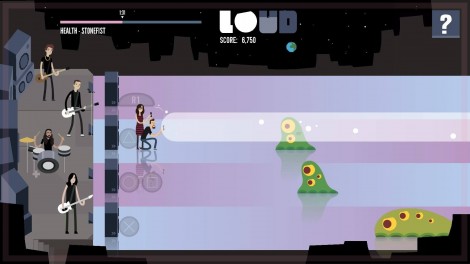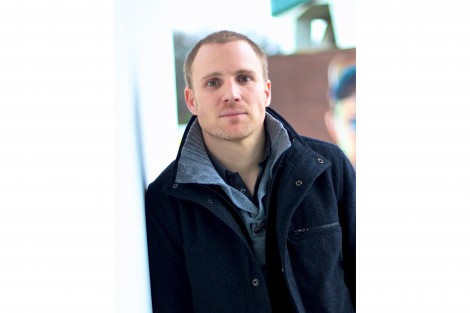[dropcap]T[/dropcap]he old adage says it takes 10,000 hours of practice to excel at any one thing. The implication is that success comes from picking a path early in life and sticking to it.
Yet, within Toronto’s widening artistic landscape, that’s far from the case. Today, fewer artists are subscribing to a single discipline and instead are opting to experiment with multiple art forms to create some of Canada’s most original works.
Alex Jansen, owner and Creative Producer of multimedia production company Pop Sandbox in Toronto, understands this. Jansen and co. created 2016’s Loud on Planet X, a rhythm-shooter video game that features the music and likenesses of Shad, Lights, July Talk, and more.
At first glance, Loud is an affectionate ‘northern’ twist on games like Guitar Hero and Plants vs. Zombies, but upon closer inspection, the indie hybrid is emblematic of a culture shift within Toronto’s artistic community where collaboration and bridging media are quite literally redefining artistry.
“I always loved comics, film, video games, music as a kid, but you had to choose one to hone in on. Now I don’t think you do,” said Jansen. Before Loud, Pop Sandbox made their name with the award winning, first-of-its-kind documentary graphic novel Kenk: A Graphic Portrait. The book blended journalistic and documentary storytelling with a comic book visual style to tell the story of prolific bike thief Igor Kenk in a previously unexplored format.
A graduate of Queen’s University, Jansen began his career in film production before growing frustrated with the logistics of distributing features. Jansen retained the production, distribution, and marketing skills he’d picked up in the industry but decided whatever came next wouldn’t be constrained by a single medium.
The freedom to tear down artistic silos became part of Pop Sandbox’s mission statement: “The whole idea with Pop Sandbox was the ‘sandbox’ being a creative environment where you can take people from different disciplines and churn out different projects but not being tied to any one medium.”
On university campuses, students are breaking away from unilinear methods of storytelling. Sina Dolati, U of T student and and co-founder of The Labyrinth Pictures, experimented with gamifying filmmaking in the interactive short 3 Minutes.
The short film plays out like a choose-your-own-adventure novel, asking its online viewer to select one of several story paths for the protagonist to take and creating a network of different viewing experiences based on the person watching.
That Toronto, of all places, is host to this new wave of media mixing is not without reason. The Foundation Assisting Canadian Talent on Recordings (FACTOR) traditionally provides funding for the recording and distribution of Canadian music that they deem commercially viable, but recently it has allocated funds for new forms of content distribution. FACTOR’s digital marketing initiative seeks unconventional platforms to spread Canadian music to broader audiences, providing grants to projects like Loud on Planet X, in order to incubate and incentivize artists experimenting with new formats.
The provincial government has also helped shape the creative cluster around Toronto. In 2009, the government of Ontario offered French video game company Ubisoft $263 million dollars over 10 years to establish a development studio in the province that would create 800 new jobs.
Ubisoft chose Toronto, in part, because of the talent pool of artists from disciplines outside of gaming already present in the city. With games constantly pushing the technical bar forward to tell bigger, more ambitious stories, companies like Ubisoft increasingly rely on talent and knowledge spillover from industries like film, music, and dance.
With all of these initiatives, Jansen’s explanation of the unfiltered creativity around him is simple. “You have these creative talents that are interested in breaking out of just their silo, and then you also have funding models that are supporting that. And then you have this community in Toronto where you just have two of the most incredible communities that are also super collaborative — it’s this perfect storm for coming up with some really interesting things.”
Powerful art does not need to fit a single medium’s standard. Today’s creators know this and flood to places like Toronto, where experimentation with form is celebrated by like-minded innovators, as well as financial backers.
Innovation is tough to define and harder to find, but one thing is certain: it doesn’t come from following the rules. When rule breakers are seen as ground breakers, and collaborators become innovators, our Canadian art can flourish in new ways.
Disclosure: The Varsity‘s Video Editor, Shaq Hosein, is a co-founder of The Labyrinth Pictures.




